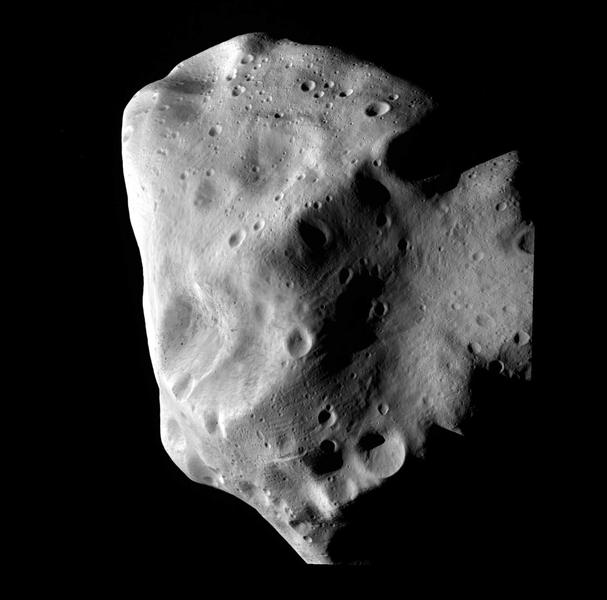New telescope poised to warn of asteroids years in advance
Getty Images


A free daily email with the biggest news stories of the day – and the best features from TheWeek.com
You are now subscribed
Your newsletter sign-up was successful
Asteroid impacts on Earth are more common than we think, and the B612 Foundation believes that its proposed $250 million Sentinel telescope could help detect when one might strike.
The group — which includes several former NASA astronauts — says that the Sentinel would be able to track 90 percent of Earth-orbit-crossing asteroids larger than 100 meters, and would give years or even decades of notice before one of them potentially hits the Earth.
From 2000 to 2013, a network of sensors operated by the Comprehensive Nuclear-Test-Ban Treaty Organization (CTBTO) picked up 26 major explosions on Earth, all of them caused by asteroids making contact or bursting apart in the atmosphere. They ranged in energy from 1 kiloton to 600 kilotons (the bomb that destroyed Hiroshima was 15 kilotons) — and just one was picked up hours in advance. That's why the B612 Foundation wants Earth to have a fighting chance when it comes to predicting asteroid strikes.
The Week
Escape your echo chamber. Get the facts behind the news, plus analysis from multiple perspectives.

Sign up for The Week's Free Newsletters
From our morning news briefing to a weekly Good News Newsletter, get the best of The Week delivered directly to your inbox.
From our morning news briefing to a weekly Good News Newsletter, get the best of The Week delivered directly to your inbox.
"In the cities that have a major danger — Tokyo, Los Angeles, San Francisco — they know the odds of big earthquakes by observing how many small earthquakes there are," B612 Foundation CEO Ed Lu, a former astronaut, tells BBC News. "And you can do this with asteroids.... These asteroid impacts in the last decade have been ones that we haven't had much data on until recently, and they tell us that in fact asteroid impacts are more common than we thought." To find out more about the Sentinel project, watch a video of various asteroid impacts below. --Catherine Garcia
A free daily email with the biggest news stories of the day – and the best features from TheWeek.com
Catherine Garcia has worked as a senior writer at The Week since 2014. Her writing and reporting have appeared in Entertainment Weekly, The New York Times, Wirecutter, NBC News and "The Book of Jezebel," among others. She's a graduate of the University of Redlands and the Columbia University Graduate School of Journalism.
-
 The ‘ravenous’ demand for Cornish minerals
The ‘ravenous’ demand for Cornish mineralsUnder the Radar Growing need for critical minerals to power tech has intensified ‘appetite’ for lithium, which could be a ‘huge boon’ for local economy
-
 Why are election experts taking Trump’s midterm threats seriously?
Why are election experts taking Trump’s midterm threats seriously?IN THE SPOTLIGHT As the president muses about polling place deployments and a centralized electoral system aimed at one-party control, lawmakers are taking this administration at its word
-
 ‘Restaurateurs have become millionaires’
‘Restaurateurs have become millionaires’Instant Opinion Opinion, comment and editorials of the day
-
 Blue Origin launches Mars probes in NASA debut
Blue Origin launches Mars probes in NASA debutSpeed Read The New Glenn rocket is carrying small twin spacecraft toward Mars as part of NASA’s Escapade mission
-
 Dinosaurs were thriving before asteroid, study finds
Dinosaurs were thriving before asteroid, study findsSpeed Read The dinosaurs would not have gone extinct if not for the asteroid
-
 SpaceX breaks Starship losing streak in 10th test
SpaceX breaks Starship losing streak in 10th testspeed read The Starship rocket's test flight was largely successful, deploying eight dummy satellites during its hour in space
-
 Rabbits with 'horns' sighted across Colorado
Rabbits with 'horns' sighted across Coloradospeed read These creatures are infected with the 'mostly harmless' Shope papilloma virus
-
 Lithium shows promise in Alzheimer's study
Lithium shows promise in Alzheimer's studySpeed Read Potential new treatments could use small amounts of the common metal
-
 Scientists discover cause of massive sea star die-off
Scientists discover cause of massive sea star die-offSpeed Read A bacteria related to cholera has been found responsible for the deaths of more than 5 billion sea stars
-
 'Thriving' ecosystem found 30,000 feet undersea
'Thriving' ecosystem found 30,000 feet underseaSpeed Read Researchers discovered communities of creatures living in frigid, pitch-black waters under high pressure
-
 New York plans first nuclear plant in 36 years
New York plans first nuclear plant in 36 yearsSpeed Read The plant, to be constructed somewhere in upstate New York, will produce enough energy to power a million homes
